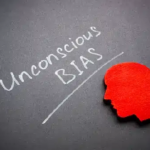Embracing Diversity: The Critical Importance of Diversity and Inclusion in the Workplace
In today’s rapidly evolving global landscape, the concept of diversity and inclusion has moved beyond being merely a buzzword – it has become a cornerstone for successful and sustainable business practices. Companies that prioritize diversity and inclusion not only foster a positive work environment but also gain a competitive edge by tapping into a wide range of perspectives and experiences. Let’s explore why embracing diversity is crucial for the modern workplace.
- Fueling Innovation: Diversity is a catalyst for creativity and innovation. When individuals from different backgrounds, cultures, and experiences come together, they bring a variety of perspectives to problem-solving and decision-making. This diversity of thought sparks innovation, driving companies to develop unique solutions and stay ahead in an ever-changing market.
- Enhancing Problem-Solving Abilities: A diverse team is better equipped to tackle complex challenges. By bringing together people with diverse skills, knowledge, and approaches, organizations can create a more robust problem-solving environment. Different perspectives lead to a broader understanding of issues and more effective strategies for resolution.
- Reflecting the Customer Base: In a world where consumer demographics are increasingly diverse, it is imperative that organizations reflect the diversity of their customer base. Companies that understand and appreciate the diverse needs and preferences of their customers are more likely to develop products and services that resonate with a broad audience.
- Attracting and Retaining Talent: A commitment to diversity and inclusion is a key factor in attracting top talent. In a competitive job market, employees seek workplaces that value their individual contributions and create an inclusive atmosphere. Organizations that prioritize diversity not only attract a diverse pool of candidates but also retain valuable employees who feel a sense of belonging.
- Improving Employee Engagement and Morale: Employees are more likely to be engaged and satisfied in a workplace where they feel respected and included. Fostering a diverse and inclusive culture contributes to higher morale, increased motivation, and a stronger sense of loyalty among team members. A positive work environment leads to higher levels of productivity and employee well-being.
- Meeting Legal and Ethical Standards: Promoting diversity and inclusion is not only a best practice but also aligns with legal and ethical standards. Many countries and regions have laws and regulations that prohibit discrimination based on factors such as race, gender, and age. Embracing diversity not only ensures compliance with these regulations but also demonstrates a commitment to ethical business practices.
- Enhancing Brand Reputation: Companies that champion diversity and inclusion build a positive brand reputation. Consumers are increasingly conscious of the values and practices of the businesses they support. A commitment to diversity sends a powerful message about an organization’s values, attracting customers who align with those principles.
- Encouraging Cultural Competence: In a globalized world, cultural competence is essential. A diverse workplace provides employees with opportunities to interact with people from various backgrounds, fostering cultural understanding and sensitivity. This, in turn, leads to stronger relationships both within the organization and with clients and partners worldwide.
- Reducing Unconscious Bias: Conscious or unconscious bias can hinder workplace dynamics and decision-making. Embracing diversity involves actively addressing and mitigating biases. By promoting awareness and education, organizations can create an inclusive culture that values individuals for their skills and contributions, irrespective of personal characteristics.
- Future-Proofing the Organization: As workplaces continue to evolve, adaptability becomes a key factor in long-term success. Embracing diversity and inclusion is a proactive strategy for future-proofing organizations. Companies that are agile and open to diverse perspectives are better equipped to navigate change and thrive in an ever-evolving business landscape.
In conclusion, the importance of diversity and inclusion in the workplace cannot be overstated. It goes beyond compliance and extends to the heart of creating vibrant, innovative, and successful organizations. By fostering a culture that values and celebrates diversity, businesses can unlock the full potential of their workforce and position themselves for sustained growth in the years to come.











 LOOKING FOR A JOB?
LOOKING FOR A JOB?